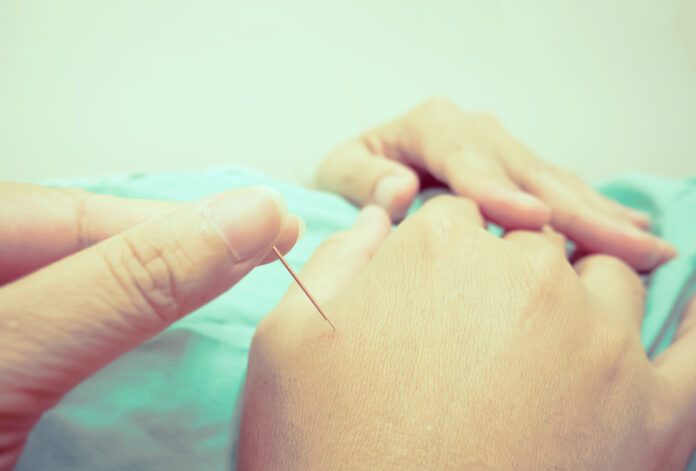A single-center randomized trial has demonstrated that acupuncture significantly improves sleep quality in patients with Parkinson’s disease. Conducted by Lixing Zhuang, MM, PhD, and colleagues at the First Affiliated Hospital of Guangzhou University of Chinese Medicine in China, the study revealed lasting benefits from real acupuncture treatment compared to sham acupuncture.
The authors concluded that while sham acupuncture may produce a short-term placebo effect, real acupuncture provides lasting clinical benefits for improving subjective sleep quality in Parkinson’s disease patients. They noted that the placebo effect diminished over time, whereas therapeutic benefits persisted.
Participants were recruited from the Parkinson Clinic of the First Affiliated Hospital of Guangzhou University of Chinese Medicine between February 2022 and February 2023. Eligibility criteria included ages 20 to 80, a diagnosis of idiopathic Parkinson’s disease, moderate or severe sleep problems, a PDSS score below 110, a Hoehn and Yahr Scale stage of 1 to 3, and stable Parkinson’s medication use for over 30 days.
Both groups received sleep hygiene guidance. The acupuncture group underwent real acupuncture, while the sham group received treatments with needles that did not penetrate the subcutaneous tissue. Sessions lasted 30 minutes and were conducted three times a week for 4 weeks, using the same 10 acupoint locations on the head, hands, feet, and legs.
Secondary outcomes included measures of excessive daytime sleepiness, anxiety, non-motor symptom severity, motor symptom severity, and quality of life. The real acupuncture group showed significant improvements in motor and non-motor symptoms, sleepiness, anxiety, and health-related quality of life post-intervention.
No severe adverse events were reported in either group, with the most common issues being severe tremor, bleeding, numbness, infection, or sharp pain during treatment.
As reported by Medpage Today, the study’s limitations included unblinded acupuncturists, a short 4-week follow-up period, and a specialized patient population from a Parkinson’s clinic in China, which may limit the generalizability of the findings.
























